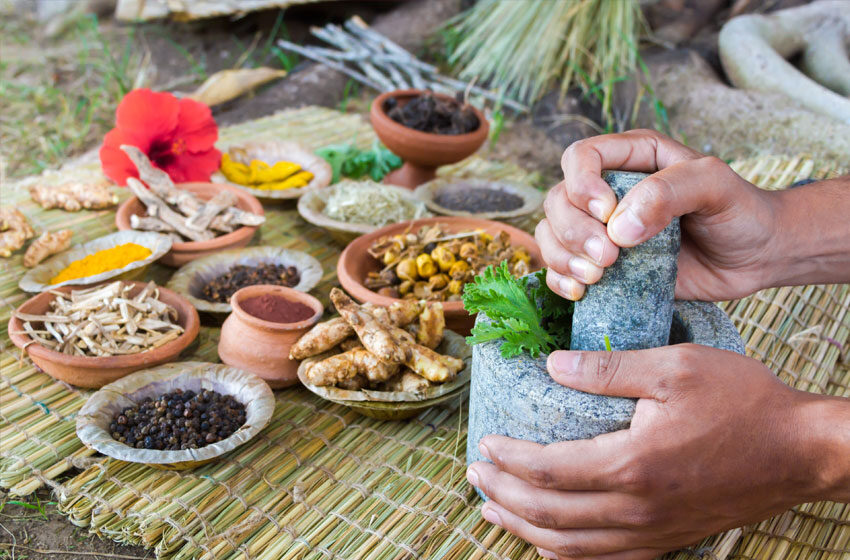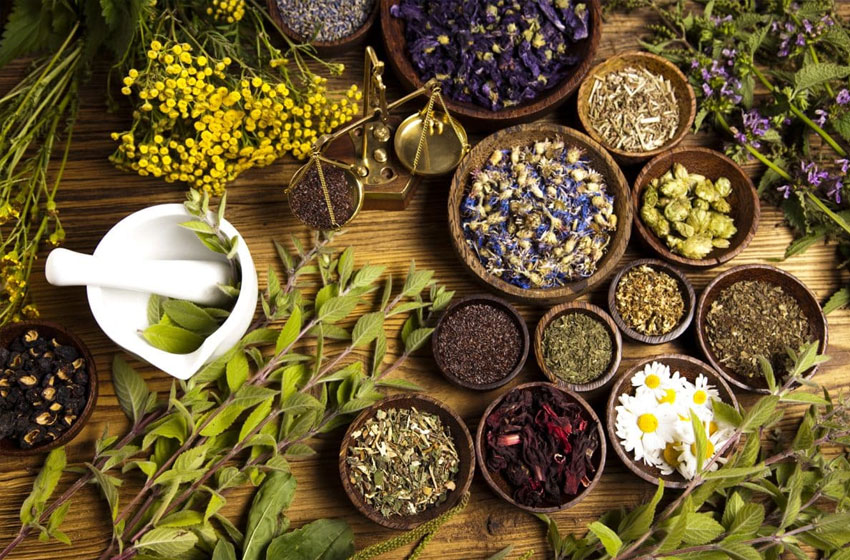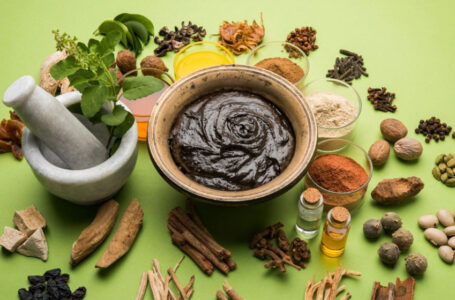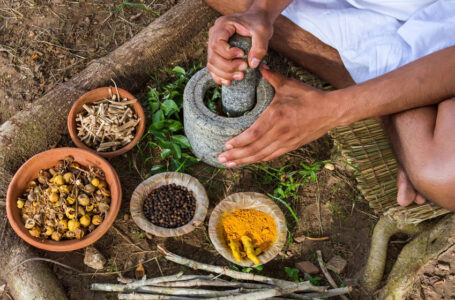Ayurveda, the key to achieving holistic wellness

What is one of the most common factors that lead to chronic diseases? High blood pressure, also known as hypertension, is one of the contributing factors to coronary heart disease, heart failure, and chronic kidney disease. Furthermore, more than 1 in every 3 Australians over the age of 18 has high blood pressure.
According to the Australian Institute of Health and Welfare, men are more likely to have uncontrolled high blood pressure than women (25% and 20%). Is there a solution to this? There certainly is, and the answer lies in Ayurveda.
Ayurveda and Australia
Ayurveda is an alternative medicine system originating from the Indian subcontinent and promotes a balance between body, mind and spirit as the ultimate way to maintain health and wellness. Australia is not untouched by the Ayurvedic revolution. The practice of Ayurveda is gaining popularity among Australians as well, with several Ayurvedic wellness centres and clinics offering natural therapies and herbal medicines to help balance the doshas. For the Indian diaspora in Australia, Ayurveda provides a familiar and comforting healing system, especially given the rising trend towards natural and holistic healthcare.
Many Australians have embraced Ayurveda for its potential to prevent diseases, promote health, and provide longevity. The nation now boasts of numerous Ayurvedic retreats and healing centres which focus on diet, yoga, and meditation practices apart from other Ayurvedic therapies. They blend the traditional wisdom of Ayurveda with a modern approach to cater to contemporary lifestyle needs.
According to Ayurveda, five eternal substances – space, air, fire, water and earth combine to form the human body; they do so by creating three vital energies, or doshas.
And these are the forces that govern all psycho-physiological functions in the body and mind, respectively: the doshas are as follows:
- Vata – The catabolism of the body is believed to be governed by Vata dosha. It helps maintain cellular transport, balance electrolyte, and eliminate waste products. Dryness increases the effect of this dosha.
- Pitta – The metabolism of the body is believed to be governed by Pitta dosha. It regulates the optic nerve coordination and body temperature while aiding in hunger and thirst management. The body’s heat conditions aggravate this dosha.
- Kapha – The anabolism of the body is believed to be governed by Kapha dosha. It provides lubrication to the joints for proper functioning. Sweet and fatty foods increase this dosha.
When any of the elements in the body increases or decreases due to food, lifestyle or climate, it creates an imbalance leading to disease.
Ayurvedic Remedies for Hypertension

- Add a teaspoon of coriander and a pinch of cardamom to one cup of freshly squeezed peach juice. Drink this solution as many as two or three times a day to help deal with high blood pressure.
- Try consuming some moong dal soup, and add some cilantro, cumin, and a pinch of turmeric. Moong dal helps bring down high blood pressure.
- Honey water is also said to help. All you need to do is to add a teaspoon of honey and five to 10 drops of apple cider vinegar to a cup of hot water. Drink it early morning on an empty stomach. This drink helps reduce cholesterol, maintains vasodilation and helps to regulate blood pressure.
- Mix orange juice and coconut water in a ratio of two to one. Drink half to one cup at least two to three times a day.
- Mix orange juice and coconut water in a ratio of two to one. Drink half to one cup at least two to three times a day.
- Cucumber raita is said to be a good diuretic that helps keep blood pressure along with digestive health in check.
- Eat some watermelon with a pinch of cardamom and a pinch of coriander added. This is said to act as a mild diuretic and will help to regulate blood pressure.
- Ayurveda suggests bringing this herbal mixture to the rescue. Mix punarnava (one part), passion flower (one part) and hawthorn berry (two parts). Steep half a teaspoon of this mixture in a cup of hot water for five to 10 minutes. Drink this tea after lunch and dinner to keep blood pressure levels in check.
How can Ayurveda help to maintain good health?
Weight Loss and Maintenance
A healthy diet and modification in lifestyle habits through Ayurvedic treatments help shed excess body fat. In Ayurveda, weight is not a major concern but eating habits are. By allowing the body to detox through correct dietary restrictions, it is possible to achieve a toned body.
Healthy and Glowing Skin and Hair
Have you been spending a lot of money on beauty supplements and treatments yet got little to no satisfactory results? Then perhaps, it is time you ditch those pricy clinical treatments and consider Ayurveda, which suggests an individualised diet according to the need of the body.
When choosing foods, we should always be mindful of our dosha or mind-body type and eat a diet compatible with our constitution. If the doshas become imbalanced due to the wrong diet, this leads to poor metabolism and toxic buildup in the body.
This means that Vata-dominant people choose to root vegetables and warm foods. Avoid coffee and caffeinated tea, as they are too stimulating for Vata-dominant types. Consume plenty of healthy fats such as avocados, ghee, sesame seeds, and almonds. If you are Pitta-dominant, choose cooling foods.
Consume plenty of coconut water, cook with coconut oil, and eat cooling foods such as avocados and bananas. Limit intake of alcohol, coffee, spicy, oily, and fried foods. For Kapha-dominant people, stick to light and heated foods and spices. Eat plenty of organic vegetables to keep your insides clean and light.
Steer clear of too many sweet and salty tastes: stick to bitter and pungent foods instead. The light and stimulating qualities of these tastes will increase the forces of prana in the body (movement and elimination), which naturally clears toxins from the body and keeps the digestive fire strong.
Reduce Stress
With a fast-paced lifestyle that leaves no scope for rejuvenation or relaxation, Ayurveda guarantees a reduction in stress and anxiety. Regular practice of yoga, meditation, breathing exercises, massages, and herbal treatments allow the body to calm down, detoxify, and rejuvenate.
Yoga improves the autonomic nervous system making your mind alert, so you can focus well and stay energised throughout the day.
Breathing exercises keep infections at bay and allow abundant oxygen supply to the cells to create a sense of awareness. Depression and anxiety can be treated with ayurvedic oil massages treatments such as Shirodhara, Abhyangam, Shiroabhyangam, and Padabhyangam.

Reduce Inflammation
With a fast-paced lifestyle that leaves no scope for rejuvenation or relaxation, Ayurveda guarantees a reduction in stress and anxiety. Regular practice of yoga, meditation, breathing exercises, massages, and herbal treatments allow the body to calm down, detoxify, and rejuvenate.
Yoga improves the autonomic nervous system making your mind alert, so you can focus well and stay energised throughout the day.
Breathing exercises keep infections at bay and allow abundant oxygen supply to the cells to create a sense of awareness. Depression and anxiety can be treated with Shirodhara, Abhyangam, Shiroabhyangam, and Padabhyangam. Here’s a list of some Famous Ayurvedic Places in Australia.
These include:
Ayurveda Bliss Holistic Centre: Situated in Sydney, this Ayurvedic centre offers various services such as pulse diagnosis, herbal remedies, diet and lifestyle modification, Ayurvedic cooking, yoga, and meditation.
Ayurvedic Wellness Centre: Located in Bondi, this centre offers traditional Ayurvedic treatments including detox programs, herbal medicines, rejuvenation therapy, and lifestyle advice.
Ayurveda House: This Queensland-based Ayurvedic centre offers a range of services like Ayurvedic consultation, therapies like Abhyanga, Panchakarma, and lifestyle and diet guidance.
The Ayurvedic Clinic: Located in Melbourne, this clinic offers various services such as Ayurvedic consultations, Panchakarma treatments, Marma point therapy, and Ayurvedic herbal medicine.
Ayurwoman Ayurveda Clinic: Another well-known Ayurvedic wellness centre in Melbourne, they offer treatments for a variety of health issues like skin problems, infertility, weight loss, arthritis, and more.
Ayurveda Yoga Wellness Clinic: Situated in Melbourne, this clinic combines the power of yoga and Ayurveda to heal the body and the mind. The clinic offers a variety of Ayurvedic treatments, including Panchakarma, Marma therapy, and other rejuvenation therapies.
Mudita Health Clinic: Located in Byron Bay, this clinic offers a holistic approach to wellness through Ayurvedic consultation, yoga, massage, and lifestyle modifications.
These Ayurvedic centres strive to cater to the needs of all, irrespective of their ethnicity, providing therapies and treatments tailored to the individual’s body constitution and lifestyle. They aim to restore the natural harmony of the body and mind, thereby enhancing overall health and well-being.
With an increase in the awareness and understanding of Ayurveda, more Australians are expected to integrate this ancient system of healing into their daily routines. The Indian community in Australia can also find solace in Ayurveda, as it reconnects them to their roots while providing a natural way to maintain and improve their health. The future of Ayurveda in Australia certainly looks promising, potentially offering an invaluable contribution to the nation’s health and wellness landscape.





